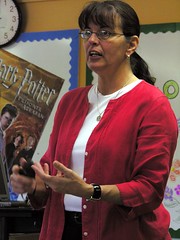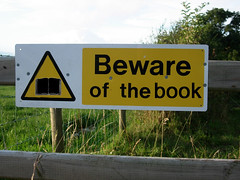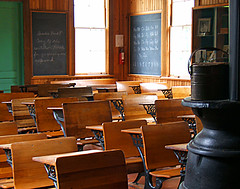 We managed to pull CK-12’s founder and leader, Neeru Khosla, away from her work to pick her brain on her vision for the modern day education system and where she is steering the CK-12 Foundation towards.
We managed to pull CK-12’s founder and leader, Neeru Khosla, away from her work to pick her brain on her vision for the modern day education system and where she is steering the CK-12 Foundation towards.
Can you tell us in a single sentence what CK12.org is?
CK-12 is a “collaborative enabler” that provides access to information to all, while empowering teachers to treat each student within the requirements, but treating each one as an individual with their own particular needs, pace of learning, and curriculum standards.
What form does this take?
This enabler is an online tool that makes production and customization of content possible.
Obviously you felt there was a problem in the current education book system. Which problem in particular are you looking to solve?
While everyone believes that there are problems in education that can be solved by their own solutions, and that each solution works in their own context, at CK-12 we believe that we are providing a very fundamental need for every student – content that is customizable and collaboratively produced.
If we believe in the notion that every person has an inalienable right to learn, then we have to insure that they have access to information and educational resources. For younger students that access should be free or at the very least that access should be at a nominal cost. Targeting both access to content as well as cost should help in leveling the playing field for learning.
Speaking of cost, what will be the cost for using the CK-12 system?
These tools are completely free and open to all. The only cost incurred by the users will be for print production from independent, print-on-demand publishers.
Why have US educational books become so expensive?
Part of the reason that books have become expensive is that developing and publishing books is a business. As a result, publishing companies have to account for themselves, particularly in terms of profits, expenses, growth rates etc. While this is the case for books, education by itself cannot be and is not a business. It is a social cost that needs to be carried by society for all that cannot afford to pay.

Publishing has become a very large industry, and due to the historical business model, it is very difficult to drastically change the path it is on.
There is no way that you can change the physical nature of a book, thus making it impossible to adapt and optimize the changes that are occurring in this dynamic age of information, communication, and customization. Publishing has become a dinosaur and needs to make a course correction.
It is projects like CK-12 that we think will be the catalyst for change to occur.
In the course of founding and developing CK-12, you have had the opportunity to meet many teachers from many different levels. Is there anything you are hearing over and over again?
 We have talked to many teachers and what they say depends upon where they are in terms of their career and where they work. If you compare teachers – teaching in private school versus public school, you will hear different things.Private school teachers have much more freedom to do what they believe is in the best interest of the student.
We have talked to many teachers and what they say depends upon where they are in terms of their career and where they work. If you compare teachers – teaching in private school versus public school, you will hear different things.Private school teachers have much more freedom to do what they believe is in the best interest of the student.
Public school teachers are more restricted as to what they can teach. They are required to teach to their local bureaucratic requirements. Often these requirements have no bearing to what the reality is in the classroom.
Teachers are also asking for less expensive material that allows ALL to learn and benefit from educational resources. In keeping with this thinking, we would like to enable and encourage teachers in different parts of the world to take this content and convert it into different languages and not have only English language material.
For this reason we are also providing the tools necessary to compose and create content from scratch, or even using an existing WikiPedia page.
This editor makes it possible to easily modify existing content. So, for example, if the chapter is in English, then nothing stops the user from inserting Spanish paragraphs throughout to help students better understand the material.
This is the real power of CK-12, the ability to Tweak/Edit/Add or “TEA” a chapter to their own requirements.
Will CK-12 enable teachers to be able to translate and reproduce content into different languages to aid with this learning process?
In many of the classrooms, content and information that is provided does not meet the need and often does not fit the requirements. Many teachers tell us “just give us the materials that will help our students do well on the standardized testing” or “help us make a concept understandable to many different kinds of learners“.
For example, look at some of the low performing school districts, say in some areas in Southern California, where the population is primarily Hispanic and the students are not fluent in English, yet the teachers are provided with textbooks that are high level English language content. How are they going to learn?
In addition, teachers are asking for a platform where they can share information, lesson plans, and experience in what works for different kinds of students, etc.
The teacher as a lonely figure is a well documented fact, but we hope to provide connections that will help in their everyday work.
You are a mother of teenagers and young adults, what differences in the education system have you witnessed?
I do see some changes. There is more competition from fierce, academically focused students from other countries. As a result, there is a sense of panic from parents who are asking for more and more focus on getting academic skills that will make students more eligible for admission into colleges.
More and more people are trying to make their children do what makes the students appear to be more “rounded,” missing the point that learning is also about fulfilling your passions, learning how to learn and not just trying to be the best candidate for a job. Young kids are no longer spending their time daydreaming or having the time to explore the world around them.
Is there the possibility of ‘information overload?’ How does CK-12 help manage all this information?
CK-12 has introduced the concept of flexbooks. These flexbooks allow for us to provide only the amount of content that each student needs. I have yet to meet a teacher who says that he or she used the whole book in a given year. So why do we need information overload? CK-12’s flexbooks will allow for 100% relevant chapters.
How are you ensuring that the content scholars and teachers collate is worthy of the curriculum?
How can we make sure that the content is usable, given that there are so many ways to look at this issue, and it happens to be one of the most contentious parts of the education system, and given the fact that people are often singularly minded in their ideas that their perspective on this issue is the best one?
We at CK-12 believe that we have to provide content that can be contextualized and quality controlled to each case; hence the ability to customize the content becomes very important. While we provide for this customization we also have to make sure that we are providing content that is following requirements for the K-12 age group.
The way that we do this today is through aligning the seeded content to standards.
We are modeling checks and balances for quality control in a collaborative fashion (as in “Many Eyes Shallow Bugs“). Part of that process is to have domain experts (DE) who are either teacher practitioners or college professors who have developed K-12 content. These domain experts work with the authors, who again have had prior experience with developing curriculum. After the DE and the authors have reached a certain level of quality we send the content to teacher practitioners for review.
In addition, over the summer we have had 17 high school interns go through the content and give us feedback. The idea is that these students will help us make the content readable and usable for them and their peers.
Having all these checks and balances will help us avoid many of the contentious creditability issues that are hindering and surrounding other online content providers such as Wikipedia and Google’s Knol.
We believe that the CK-12 user community will develop a collaborative methodology for developing good quality for their own unique needs. This is where we are hoping that our tools will allow teachers to use this concept in a very productive and useful manner.
CK-12 sounds American. Is your system designed exclusively for the American education system?
Initially, as a proof of concept, yes, it is for the American education system. However, we will be allowing people to use the system in their own contexts. We are hoping that we will become a Wikipedia kind of model, where different entities will develop content according to their own needs and regional requirements.
How can people get involved?
Get in touch with us. We would love to have you contribute to and use our system. We are coming out of private beta and moving into a public release very soon. We want teachers and students alike.
Let us thank Neeru for taking the time to let us into her world. Visit www.ck12.org/about for more information on how CK-12 can help you.
Related Entries:



